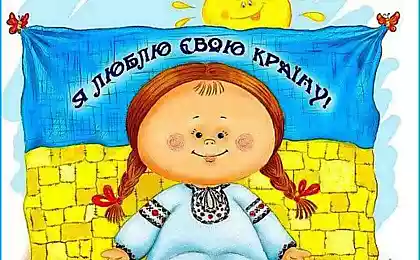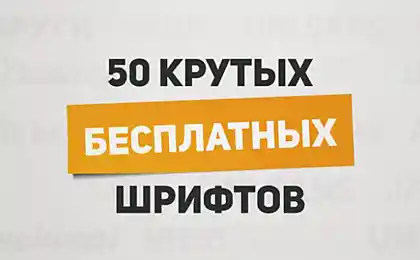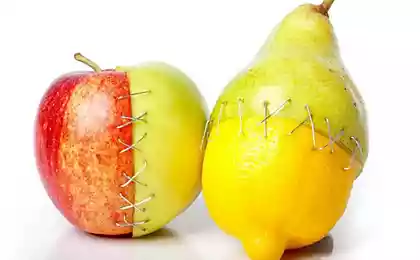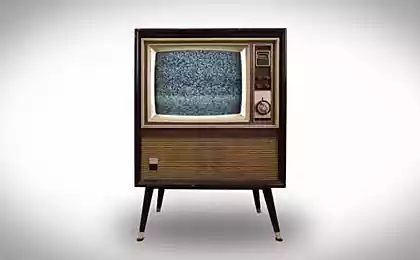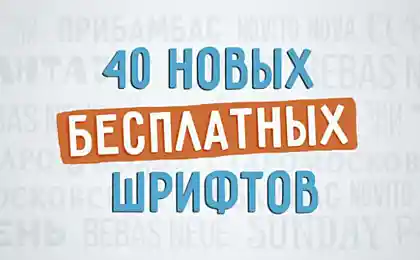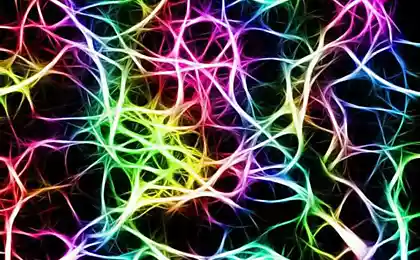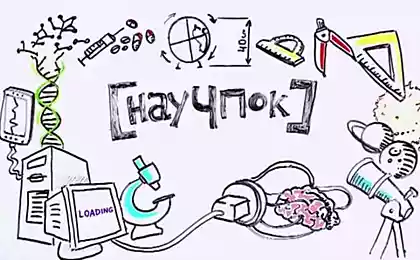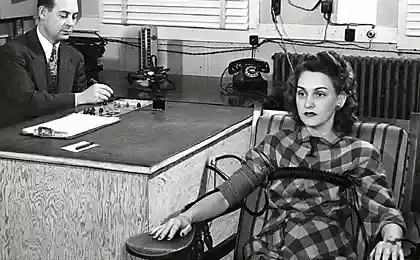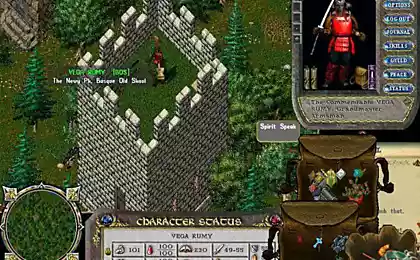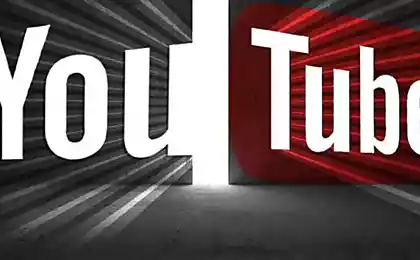684
James Glick about how the Internet drives us crazy and what to do with it
Writer and science popularizer James Glick, one of the main researchers of information theory and chaos. Let's find out how much information in the Universe, why Twitter is an anomaly and how not to go crazy in the network.
Seventy three million nine hundred twenty two thousand five hundred thirty nine
James Glick, an American writer, journalist and popularizer of science
What is information
When I wrote about the chaos, everyone was asking me what is chaos when I wrote about the information everyone was asking me what is information. Now I write about time travel, and probably everyone will ask me what time. But if these questions had a simple answer, they wouldn't have to write books.
Over the last 20 years emerged and mobile phones, and the Internet, people have literally started to live in the flow of information, to use the words "bit" and "byte" to be interested in the theory of information. But clearly define what the information is, still, no one can. No the definition is not exhaustive.
"Information" is an old word that has long meant something uncertain. We are surrounded by a continuous flow of information: books, films, chats, reports in Newspapers, magazine articles, sounds and pictures. Individual to each of us the DNA code the same information. What have these categories in common?
All this information can be shared with each other, to transmit it over the Internet and record on the flash drive. And all this information can be measured in bits — you can tell how much information is contained in a particular message, film or book. In human DNA contains far more bits of information than in conventional photography, but much less than in the Library of Congress.
Our brain and the universe is just a giant CD with a limited amount of information on them
No one knows exactly how much information is contained in the Universe, but it is important to understand that this figure exists. The amount of information in the Universe is not infinite. As in the human brain, and in the information media. Our brain and the universe is just a giant CD with a limited amount of information on them.
What is chaos and how to change it
My main topics of study are closely related. Information and chaos — two concepts that actually describe the same thing — the difference between order and disorder. Chaos is a phenomenon of instability, something we can't describe with 100% probability: the weather and the state of the economy is as unpredictable as the frequency of the heartbeat.
But before the advent of chaos theory, these phenomena were considered separately: for example, the cardiologist had nothing to do with the weatherman. Over time it became clear that the relationship between the study of heart problems and weather conditions exist.
http://cdn00.vidyomani.com/c/4/5/3/zjy80lcr9h9q/index.html SUBSCRIBE to OUR youtube channel that allows you to watch online, download from YouTube free video about the recovery, the rejuvenation of man. Love for others and ourselves, as the feeling of high vibrations — an important factor for improvement .
Information as chaos, describes the phenomena of the categories of "order" and "disorder" and firmly associated with variability, uncertainty and instability. It would seem that everything should be Vice versa: information gives us knowledge, and knowledge is something that is the opposite of uncertainty. But, relatively speaking, 1 bit of information is a degree of chaos.
The earth is not the center of the Universe. And we are not the center of the information.
People create information and therefore consider themselves creative (from the word create, "create"). Every time someone says something, in the world there is a new information. We create information in phones, the Internet and even in space. But I think that people should be modest and not to imagine himself the sole "creators" of information. Like Copernicus, who declared that the Earth is not the center of the Universe, you can calm people down and say that we are not the center of the information.
On my experience, I realised that information and information flows have their own life. Simple and very nice example of this is our genes. Every person is a product of their genes, and hence the product information. We keep information which in the course of evolution is passed from person to person and shapes us from the moment of conception.
New information era
Paradoxically, the fact that the information which we so appreciate, slowly but surely driving us crazy, turning into uncontrolled information flow. Every new technology is always two sides of the coin, every new communication channel — it is both a blessing and a curse. With the advent of printed books and their spread around the world, people were outraged that too many of them to read everything and be aware of everything happening was impossible. Books lost in libraries, and the libraries became a graveyard of books. With the advent of Internet everything has become much worse. Every day we find ourselves in a graveyard of information, which is extremely difficult to navigate.
For example, tweet daily billions of messages — just amazing! The communication channel through which almost half of the planet every day sends short messages, most of which has no meaning and value, is just an anomaly. To find among so many information all the posts that would be of interest to you personally, will not work.
The experience of presence in Twitter and the experience of presence in Facebook is comparable to experience of visiting of shop of sweets
The experience of presence in Twitter and the experience of presence in Facebook is comparable to the experience of visiting the sweet shop, where every shelf, spilled thousands of delicious and beautiful candies. You want to grab anything you can reach. But in the shop you're not so much fascinated by the number of available sweets, how many puzzled, frustrated and confused. You know that somewhere there will be sweets more delicious and more beautiful. Perhaps you need to they, but they are hard to find and they will have to pay.
Fifty million two hundred eighty nine thousand six hundred thirty seven
Who to trust: the blogger or "Wikipedia»
I'm a big fan of the "cemeteries" of information like "Wikipedia", but I know that many people still treat it with extreme suspicion, although a resource used by all. Wikipedia — a great resource, but relying completely on it because that article you read may have been changed twenty seconds ago a drunk student.
But the encyclopedia, like other printed books, too, have never been perfect. The books contradict each other. The encyclopedia contradict each other. Even the eyewitnesses contradict each other. All contradict each other! Wikipedia is one resource that constantly reminds us of this, but this does not mean that it is not necessary to use it.
The main thing you have to learn when using the Internet, searching and filtering. Google helps us to filter information, but not all of the results that it gives, perfect. You need to understand that you can't rely on top 10 results of search engines. The words of T S. Eliot, that information is not knowledge, and knowledge is not wisdom. And people as thinking creatures need to decide for themselves what is good, what is important, what is beautiful. Such judgments are always superior to pure science and pure math, and he demonstrated that people and machines are not one and the same.
The Internet is an eternal struggle, and this struggle, in General, is full of fun
Filters can be considered spam-filters built into mail, bloggers, Newspapers, magazines, TV channels and any other communication channels that you follow because you trust the people who publish the information and hope that they will not be deceived.
But it is important to remember that Twitter and Facebook provide a very deceptive experience, because there we are changing our views and we have new authorities. We should never think, "OK, I have found the only right information — and now I'm all happy!". The blogger that you loved yesterday, today may become boring. This is normal. You change, and they change too. The Internet is an eternal struggle, and this struggle, in General, is full of fun.
The future of information
About the future of information, I know no more than others. We all see the same thing. The transmission of information over thousands of kilometers using a mobile phone, which even 100 years ago, seemed to us something incredible, is already out of date. Every day the information space around us gets faster, smarter and more surprising.
Sooner contact lens implants and limbs were found only in the pages of science fiction, and now I have a watch on his arm that send me a message from my car! It's fantastic — and it's scary! We just have to be fascinated and frightened by these possibilities. I don't know what will happen when we all turn into one giant brain, but it will be just incredible. published
See also:
Vyacheslav Polunin: don't take a sandwich bigger than your mouth
Don't wait for a scary medical diagnosis – thank your body right now!
P. S. And remember, only by changing their consumption — together we change the world! ©
Source: daily.afisha.ru/technology/1316-dzhejms-lik-o-tom-kak-internet-svodit-nas-s-uma-i-chto-s-etim-delat/
Seventy three million nine hundred twenty two thousand five hundred thirty nine
James Glick, an American writer, journalist and popularizer of science
What is information
When I wrote about the chaos, everyone was asking me what is chaos when I wrote about the information everyone was asking me what is information. Now I write about time travel, and probably everyone will ask me what time. But if these questions had a simple answer, they wouldn't have to write books.
Over the last 20 years emerged and mobile phones, and the Internet, people have literally started to live in the flow of information, to use the words "bit" and "byte" to be interested in the theory of information. But clearly define what the information is, still, no one can. No the definition is not exhaustive.
"Information" is an old word that has long meant something uncertain. We are surrounded by a continuous flow of information: books, films, chats, reports in Newspapers, magazine articles, sounds and pictures. Individual to each of us the DNA code the same information. What have these categories in common?
All this information can be shared with each other, to transmit it over the Internet and record on the flash drive. And all this information can be measured in bits — you can tell how much information is contained in a particular message, film or book. In human DNA contains far more bits of information than in conventional photography, but much less than in the Library of Congress.
Our brain and the universe is just a giant CD with a limited amount of information on them
No one knows exactly how much information is contained in the Universe, but it is important to understand that this figure exists. The amount of information in the Universe is not infinite. As in the human brain, and in the information media. Our brain and the universe is just a giant CD with a limited amount of information on them.
What is chaos and how to change it
My main topics of study are closely related. Information and chaos — two concepts that actually describe the same thing — the difference between order and disorder. Chaos is a phenomenon of instability, something we can't describe with 100% probability: the weather and the state of the economy is as unpredictable as the frequency of the heartbeat.
But before the advent of chaos theory, these phenomena were considered separately: for example, the cardiologist had nothing to do with the weatherman. Over time it became clear that the relationship between the study of heart problems and weather conditions exist.
http://cdn00.vidyomani.com/c/4/5/3/zjy80lcr9h9q/index.html SUBSCRIBE to OUR youtube channel that allows you to watch online, download from YouTube free video about the recovery, the rejuvenation of man. Love for others and ourselves, as the feeling of high vibrations — an important factor for improvement .
Information as chaos, describes the phenomena of the categories of "order" and "disorder" and firmly associated with variability, uncertainty and instability. It would seem that everything should be Vice versa: information gives us knowledge, and knowledge is something that is the opposite of uncertainty. But, relatively speaking, 1 bit of information is a degree of chaos.
The earth is not the center of the Universe. And we are not the center of the information.
People create information and therefore consider themselves creative (from the word create, "create"). Every time someone says something, in the world there is a new information. We create information in phones, the Internet and even in space. But I think that people should be modest and not to imagine himself the sole "creators" of information. Like Copernicus, who declared that the Earth is not the center of the Universe, you can calm people down and say that we are not the center of the information.
On my experience, I realised that information and information flows have their own life. Simple and very nice example of this is our genes. Every person is a product of their genes, and hence the product information. We keep information which in the course of evolution is passed from person to person and shapes us from the moment of conception.
New information era
Paradoxically, the fact that the information which we so appreciate, slowly but surely driving us crazy, turning into uncontrolled information flow. Every new technology is always two sides of the coin, every new communication channel — it is both a blessing and a curse. With the advent of printed books and their spread around the world, people were outraged that too many of them to read everything and be aware of everything happening was impossible. Books lost in libraries, and the libraries became a graveyard of books. With the advent of Internet everything has become much worse. Every day we find ourselves in a graveyard of information, which is extremely difficult to navigate.
For example, tweet daily billions of messages — just amazing! The communication channel through which almost half of the planet every day sends short messages, most of which has no meaning and value, is just an anomaly. To find among so many information all the posts that would be of interest to you personally, will not work.
The experience of presence in Twitter and the experience of presence in Facebook is comparable to experience of visiting of shop of sweets
The experience of presence in Twitter and the experience of presence in Facebook is comparable to the experience of visiting the sweet shop, where every shelf, spilled thousands of delicious and beautiful candies. You want to grab anything you can reach. But in the shop you're not so much fascinated by the number of available sweets, how many puzzled, frustrated and confused. You know that somewhere there will be sweets more delicious and more beautiful. Perhaps you need to they, but they are hard to find and they will have to pay.
Fifty million two hundred eighty nine thousand six hundred thirty seven
Who to trust: the blogger or "Wikipedia»
I'm a big fan of the "cemeteries" of information like "Wikipedia", but I know that many people still treat it with extreme suspicion, although a resource used by all. Wikipedia — a great resource, but relying completely on it because that article you read may have been changed twenty seconds ago a drunk student.
But the encyclopedia, like other printed books, too, have never been perfect. The books contradict each other. The encyclopedia contradict each other. Even the eyewitnesses contradict each other. All contradict each other! Wikipedia is one resource that constantly reminds us of this, but this does not mean that it is not necessary to use it.
The main thing you have to learn when using the Internet, searching and filtering. Google helps us to filter information, but not all of the results that it gives, perfect. You need to understand that you can't rely on top 10 results of search engines. The words of T S. Eliot, that information is not knowledge, and knowledge is not wisdom. And people as thinking creatures need to decide for themselves what is good, what is important, what is beautiful. Such judgments are always superior to pure science and pure math, and he demonstrated that people and machines are not one and the same.
The Internet is an eternal struggle, and this struggle, in General, is full of fun
Filters can be considered spam-filters built into mail, bloggers, Newspapers, magazines, TV channels and any other communication channels that you follow because you trust the people who publish the information and hope that they will not be deceived.
But it is important to remember that Twitter and Facebook provide a very deceptive experience, because there we are changing our views and we have new authorities. We should never think, "OK, I have found the only right information — and now I'm all happy!". The blogger that you loved yesterday, today may become boring. This is normal. You change, and they change too. The Internet is an eternal struggle, and this struggle, in General, is full of fun.
The future of information
About the future of information, I know no more than others. We all see the same thing. The transmission of information over thousands of kilometers using a mobile phone, which even 100 years ago, seemed to us something incredible, is already out of date. Every day the information space around us gets faster, smarter and more surprising.
Sooner contact lens implants and limbs were found only in the pages of science fiction, and now I have a watch on his arm that send me a message from my car! It's fantastic — and it's scary! We just have to be fascinated and frightened by these possibilities. I don't know what will happen when we all turn into one giant brain, but it will be just incredible. published
See also:
Vyacheslav Polunin: don't take a sandwich bigger than your mouth
Don't wait for a scary medical diagnosis – thank your body right now!
P. S. And remember, only by changing their consumption — together we change the world! ©
Source: daily.afisha.ru/technology/1316-dzhejms-lik-o-tom-kak-internet-svodit-nas-s-uma-i-chto-s-etim-delat/
The mystery of the prayer "our father"
One single tool will improve health, preserve beauty and not only!
